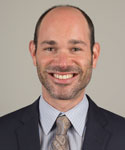Editor’s note: ACR on Air, the official podcast of the ACR, dives into topics important to the rheumatology community, such as the latest research, solutions for practice management issues, legislative policies, patient care and more. Twice a month, host Jonathan Hausmann, MD, a pediatric and adult rheumatologist in Boston, interviews clinicians and rheumatology professionals on important topics in rheumatology. In a series for The Rheumatologist, we provide highlights from these relevant conversations. Listen to the podcast online at acronair.org, or download and subscribe to ACR on Air wherever you get your podcasts. Here we highlight episode 32, “The Importance of Mental Healthcare for Healthcare Providers,” which aired on July 5, 2022.
 Mental health conditions, such as anxiety and depression, are a concern for rheumatologists and their patients. Due to a lack of time and resources, rheumatologists may not pay proper attention to their mental health needs and neglecting those needs may lead to burnout. Patients may give short shrift to their mental health needs because they devote so much attention to the physical symptoms of their disease.
Mental health conditions, such as anxiety and depression, are a concern for rheumatologists and their patients. Due to a lack of time and resources, rheumatologists may not pay proper attention to their mental health needs and neglecting those needs may lead to burnout. Patients may give short shrift to their mental health needs because they devote so much attention to the physical symptoms of their disease.
These are just some of the concerns Dr. Hausmann, ACR on Air podcast host, spoke about with Hanna Zembrzuska, MD, a psychiatrist, rheumatologist and a clinical assistant professor at The University of Iowa, Iowa City, holding appointments in the departments of Internal Medicine and Psychiatry.
Rheumatologists & Burnout
Burnout is a common problem for physicians. Dr. Hausmann and Dr. Zembrzuska looked at some of its causes within the rheumatology.

Dr. Zembrzuska
“We really get to know our patients, and many of them have a lot of symptoms. That is a big burden to carry,” Dr. Zembrzuska says.
Lab tests and imaging are a big part of rheumatologic care, which means rheumatologists often receive many messages from patients via electronic medical records asking about results. Keeping up with that correspondence can be challenging.
Also, some rheumatologists may feel a lack of control when trying to figure out what’s going on with their patients. “I think that [frustration] contributes to burnout even though we love our patients and want to help them,” Dr. Zembrzuska says.
As a physician, it can be challenging to have the instinct to help others while forgetting about self-care, Dr. Hausmann says—putting on that oxygen mask before putting it on others.
Some institutions offer yoga classes and wellness sessions. But those options may add stress, becoming just one more to-do.
When seeking help, challenges physicians may face include perceived stigma and how admitting they need help could affect their license. Questions such as, “Do you have a mental health diagnosis?” and “Are you on medication?” are difficult. Dr. Zembrzuska says, “These are very invasive questions, and then you may be honest, and it [may] cause problems. … I think it really discourages physicians from seeking care.”
She notes the need for change at the national, state, local, private practice and hospital levels to address burnout. However, healthcare providers themselves should be empowered to take control.
“We have to set priorities, and not everything needs to be done today,” she says. This mindset is easier said than done due to the limited number of hours in a day and staffing shortages. But it’s important to set boundaries.
Strategies
Rheumatologists should focus on what they can control within their day, even if it’s as simple as controlling when to exercise or how many messages to answer. Dr. Zembrzuska also notes the value of finding support from fellow physicians, discussing her own participation in online groups for physician moms and women rheumatologists.
Dr. Zembrzuska said that some national efforts to help healthcare providers with mental health are underway, including the Dr. Lorna Breen Health Care Provider Protection Act. Passed by the U.S. Congress in 2022, this bill enables more attention, strategies and research for the mental health of providers.
Another effort—although not physician specific—is the establishment of 9-8-8 that people can use to call or text the National Suicide Prevention Lifeline.
Dr. Hausmann and Dr. Zembrzuska discussed coping strategies, such as driving to work and back home in silence—a strategy Dr. Zembrzuska loves as the mother of young children. Looking out the window, even for a few minutes, when working can help individuals reconnect with nature. If nature is unavailable, a plant or two in your office, or looking at clouds and the sky, can help give you perspective.
When possible, Dr. Hausmann likes to briefly meditate to center himself and clear his mind before seeing a patient.
Mental Health & Patients
Some rheumatology patients may note experiencing problems with anxiety, depression or sleep during an assessment or on a questionnaire. How can rheumatologists address these concerns when patients report them?
“I think [this situation] invites a conversation after you’ve addressed everything else,” Dr. Zembrzuska says. “‘It looks like you might have some difficulty with anxiety, depression or sleep. Tell me about that.’ I think patients will just appreciate having an open conversation.”
If a patient says such issues as anxiety or depression are having a negative effect on their life and daily functioning, then refer them to a mental healthcare provider, Dr. Zembrzuska says. Make sure to discuss this option with your patient and get their approval so they don’t feel blindsided.
Dr. Zembrzuska also likes to give patients strategies, such as keeping a journal of their symptoms. She will explain that mental health issues may lead to increased pain perception and disability.

Dr. Hausmann
Dr. Hausmann agreed that this is an important point. In some cases, a patient’s increased pain may not require another medication to treat. The pain could tie into a need for increased attention to their mental health.
Additionally, Dr. Zembrzuska introduces her patients to meditation and mindfulness apps, such as Calm and Headspace. In her role as a psychiatrist, she has done short, guided meditations from these apps with patients. She thinks patients are more likely to use such apps after they see how easy they are to use. Podcasts related to disease management and patient support groups also give patients more information, which can be empowering, she says.
Vanessa Caceres is a medical writer in Bradenton, Fla.

